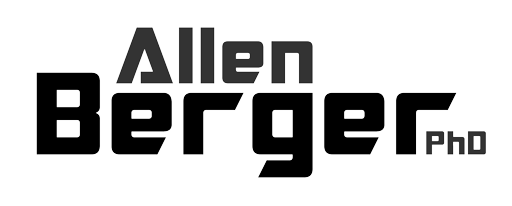Recovery Matters
An excerpt from
12 More Stupid Things That Mess Up Recovery
by Allen Berger, PhD., Hazelden Publishing
Nearly every serious emotional problem can be seen as a case of misdirected instinct…Every time a person imposes his instincts unreasonably upon others, unhappiness follows.
Twelve Steps and Twelve Traditions, 1952 -1981
Understanding the Addict Self
Once the addict self integrates itself into our personality, it forever becomes a part of who we are. We can never evict it from renting space in our consciousness; we can’t remove it from its seat on the proverbial mental committee that presides over our lives. By the time we seek help through the Twelve Steps, treatment, therapy, or some other method, the addict self has ascended to the position of governing self in our personality. It has become chairman of the board.
With some drugs this coup happens quickly, as is the case with those of us who’ve used cocaine, crystal meth, or opiates. With other drugs it may take longer, as may happen with alcohol or marijuana.
Regardless, once the addict self reaches the elite status of chairman of the board, it demands that we organize our lives according to its needs and desires. Everything else is secondary. Any parts of us that object to its reign are overruled or ignored. We compulsively follow its lead. It’s as if we’ve become zombies driven by only one desire— the desire to drink or use. Nothing else matters!
Unfortunately, the part of ourselves that knows right from wrong, the ethical self, is isolated by the addict self and given very little say in what we do. The result is that we end up violating our own personal values and beliefs. The addict self turns us into someone antithetical to our true self. Another false self is created that dominates our lives. It’s the unpredictable and dangerous Mr. Hyde to our sober Dr. Jekyll.

To regain control of our lives, we have to reorganize our personality. We have to put our true self, represented by our recovery self, in charge. But first we have to get to know our addict self.
Let’s keep these traits in mind.
♦ The addict self is unreasonable, irrational, and impulsive. It will not be swayed by reason, and it doesn’t care about right or wrong when getting and using alcohol or other drugs is involved.
♦ The addict self is tricky and adept at convincing us and others that everything is all right and that the addict self really doesn’t exist. It will patiently lurk in the shadows until it finds the perfect time to convince us that picking up a drink or using is actually a good idea.
♦ The addict self doesn’t care who it hurts. It wants what it wants when it wants it, and it won’t let anything stand in its way.
♦ The addict self is great at solving problems, overcoming any obstacle to drinking or using placed in its way.
♦ The addict self has a very limited awareness of the seriousness of our condition. It turns mountains into anthills.
♦ The addict self-will camouflage itself well, making others think that it wants to change, when the reality is that it has no intention of doing anything different.
♦ The addict self is great at reading the motivations and intentions of other people and using this information to manipulate them— especially people who might threaten its ability to drink or use: spouse, parents, other loved ones or relatives, even well-intentioned therapists or medical doctors.
♦ The addict self is grandiose. It believes that it is special and therefore the same rules and laws that apply to everyone else don’t apply to it.
♦ The addict self is deviant and rebellious in that it isn’t open to help and won’t let anyone tell it what to do.
♦ The addict self is as smart— and often more clever— than the rational, healthy selves, so it’s a worthy adversary.
Stop and reflect on these characteristics. Do you recognize your addict self? Can you see how it has taken over your life? Take a moment to write about your addict self. Can you put your finger on when it took over your life? How much control does it have over your life now?


Yes. My addict self reminds me of Donald J. Trump–an especially dangerous, tyrannical baby!
Great analogy. I get it.
Allen Berger, Ph.D. – Licensed Clinical Psychologist
[…] Next Recovery Matters | Part […]